As the discovery phase of the Digital Apprenticeship project continues, we wanted to ensure that the sector had an opportunity to have their say in the ideas we had, as well as provide a fresh opinion on shaping our work.
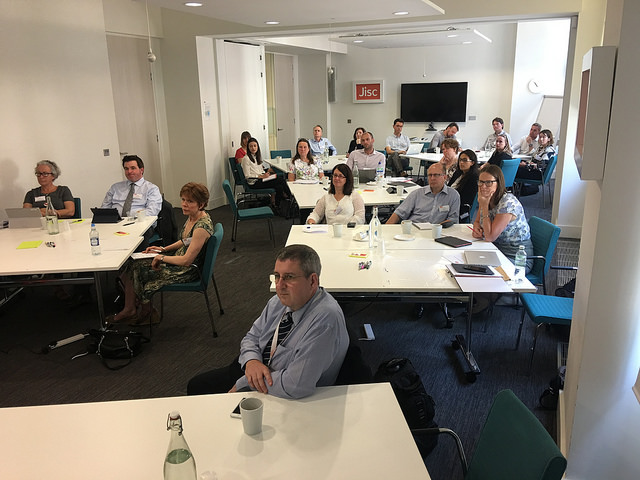
Nearly thirty people from across HE, FE and Skills attended our consultation workshop in London on the 14th June.
Sue Attewell started the day off, providing an overview of where we were, background to the co-design challenge, work undertaken so far, and the reasons we are heading down this road. She explained the process we use to decide what our priorities are and how we consult with the sector. Sue then went onto explain the progress we had made after the initial co-design challenge and where we were now. The delegates were then given an overview of the day and what we hoped, working together, we could achieve.
The first activity of the day was led and facilitated by Rob Bristow which was ranking and reflecting on user stories. User stories are an informal description of a feature of a system – usually from the perspective of a user of the system.
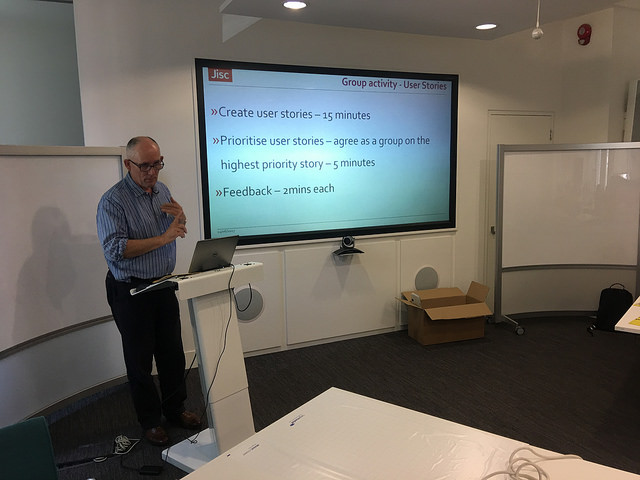
In earlier workshops we had gathered user stories from the perspectives of the key players in the digital apprentice space (employers, providers and apprentices), and we first asked out participants to rank a sample of these user stories that we saw as particularly germane to this activity. We also asked the participants to add more user stories, from the point of view of these same groups if they saw gaps in what we had provided.
One area that came out strongly in this exercise as lacking in the supplied stories was the point of view of the finance functions for both employers and providers. There was a suggestion that a way of easily accessing the spend on apprenticeships against the levy pot and other financial metrics would be helpful. The point was also made that apprenticeships raise all kinds of issues around statutory reporting and that this something that is likely to be a burden across the board. People also raised concerns that apprenticeships are a three way contractual relationship and that there are some thorny issues to be dealt with in this respect, not least the question of what happens when employers go out of business with apprentices short of qualification? Not all apprenticeship standards have qualifications embedded in them, and there are questions hanging over the transferability of any progress against these standards when employers are forced to close.
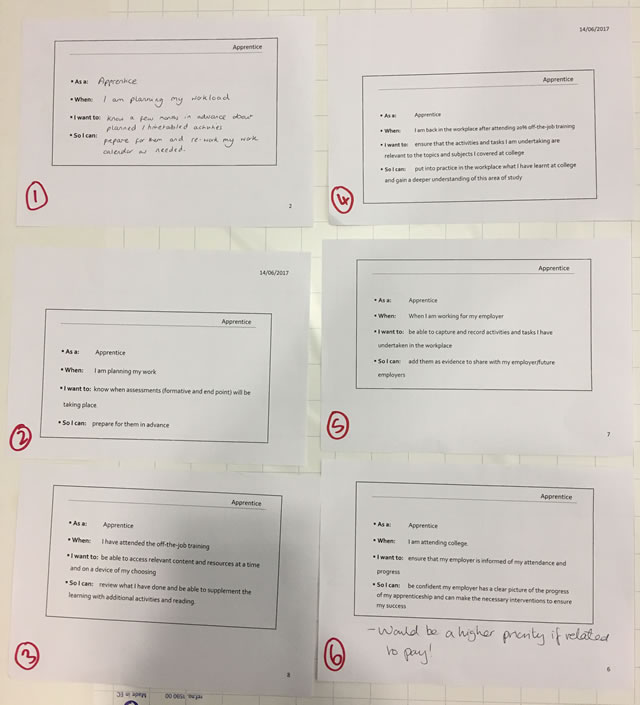
Overall, the exercise reinforced our belief that there is both a need and an appetite for a means for employers and provider to be able to share a holistic picture of their apprenticeship activities, and that there could be real benefits to the sector in pursuing this approach
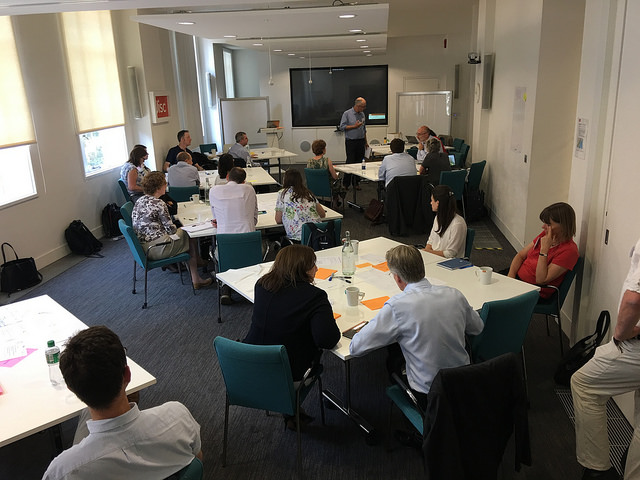
Over lunch we had many different conversations about apprenticeships and how digital can be used to enhance and improve that journey.
After lunch James Clay ran an activity on paper prototyping. These paper prototypes can provide an insight into the user experience that digital development or textual based process might not. In human–computer interaction, paper prototyping is a widely used method in the user-centered design process, a process that helps developers to create software that meets the user’s expectations and needs—in this case, especially for designing and testing user interfaces. Using pen and paper means that the focus is on the user experience (UX) and the functionality of the tool. It means that the technical development team have a clear steer from the project team on how to push forward the technical development, which data sets to use and how to process that data, as well as how potentially it could look to the end user on a dashboard. Combined with user stories it supports and aids technical development.
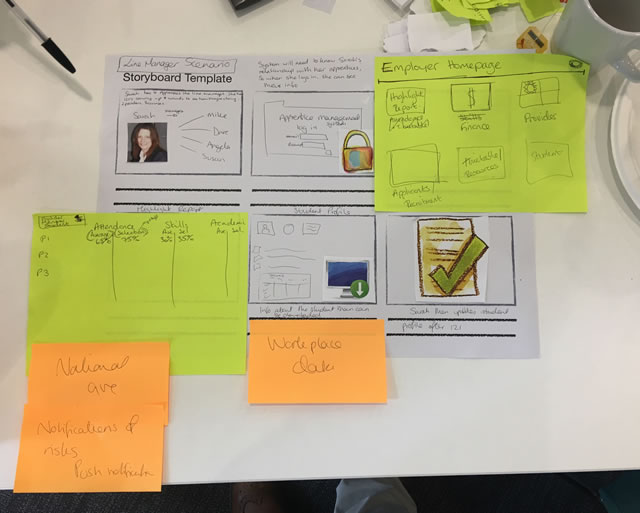
Our delegates split into groups and using their own ideas came up with their own paper prototypes that will we use to feed into our development plans and models. One group usefully focused on language and principles that dashboards and apps should use. It was recognised that this can have both a positive and negative impact on users.
We ended the day with an overview and feedback from delegates
We also mentioned the Apprenticeship and Technical Education Providers Digital Leaders programme running in September in Leicester.
The programme will support managers and senior staff to become a digitally-informed and empowered leader and they will learn how to help their organisation respond more effectively to technology-driven change. Our four-day digital leaders programme will equip you with the tools, knowledge and skills to:
- Become a more effective digital leader through your own personal and professional development
- Explore how organisations can engage more effectively with the digital technology at their disposal – at both strategic and operational levels
- Discover and reflect on how digital technology is changing the way your organisation operates – creating new leadership challenges and strategic opportunities
- Learn to lead, manage and influence digitally-driven change across organisations, departments, services and teams


Hi James,
Are there any further developments since this workshop?
Hi Amy
Details of the next steps is outlined in this blog post.
https://digitalapprenticeships.jiscinvolve.org/wp/2017/06/29/digital-apprenticeships-next-steps/
Kind regards
James